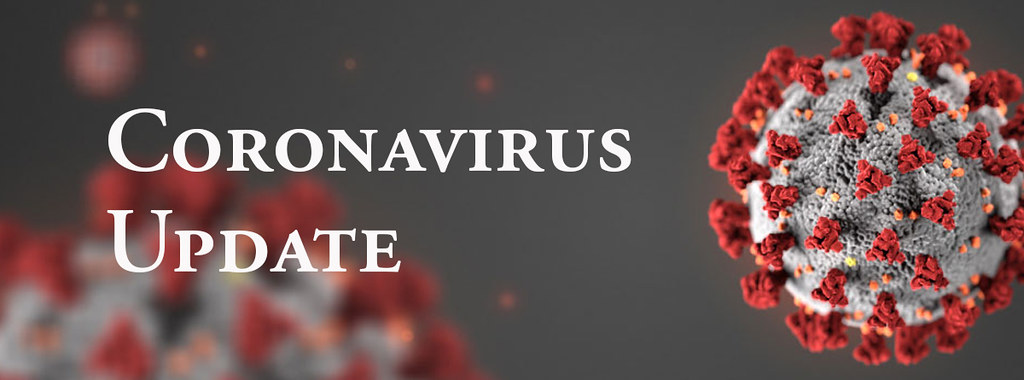What Governor Kemp’s Executive Order in response to the Coronavirus means for those in the Construction Industry.

On April 2, 2020, Georgia Governor Brian Kemp issued an Executive Order (the “Order”) restricting gatherings and business operations in Georgia due to the Coronavirus pandemic. The Order goes into effect at 6:00 p.m. on Friday, April 3, 2020 and expires at 11:59 p.m. on Monday, April 13, 2020. All prior executive orders, including those issued by cities and other local governments in the State of Georgia shall be superseded.
The Order can generally be described as a “shelter-in-place” order similar to those issued by other governors across the United States. But not all “shelter-in-place” orders are the same and violations can result in fines of up to $1,000 or one year of jail.
Under the Order, all residents and visitors of the state must practice social distancing in accordance with CDC guidelines. All gatherings shall be limited to a number of ten (10) people, except this rule does not apply to entities defined as “Critical Infrastructure.” Additionally, everyone must shelter-in-place, except for those who are part of the workforce of and traveling to conduct or participate in Critical Infrastructure. Businesses, establishments, for profit and non-profit corporations, and organizations not considered Critical Infrastructure can only engage in Minimum Basic Operations.
What does this mean for those in the construction industry? If you are considered Critical Infrastructure, you are exempt from most of the restrictions in the Order.
“Critical Infrastructure” refers to business, establishments, for profit and non-profit corporations, and organizations defined by the U.S. Department of Homeland Security as “essential critical infrastructure workforce” and the suppliers who provide essential goods and services to the critical infrastructure workforce.
In the context of the construction industry, the Order exempts:
- Workers that ensure continuation of maintenance and construction, including issuing permits and inspections for construction supporting essential infrastructure.
- Workers who support necessary credentialing, vetting and licensing operations for critical infrastructure workers.
- Workers performing housing construction related activities to ensure additional units can be made available to combat the nation’s existing housing supply shortage.
- Workers supporting the construction of housing, including those supporting government functions related to the building and development process, such as inspections, permitting and plan review services that can be modified to protect the public health, but fundamentally should continue and serve the construction of housing (e.g., allow qualified private third-party inspections in case of government shutdown).
- Workers supporting the energy sector through renewable energy infrastructure (including, but not limited to wind, solar, biomass, hydrogen, ocean, geothermal, and/or hydroelectric), including those supporting construction, manufacturing, transportation, permitting, operation/maintenance, monitoring, and logistics.
- Providing services related to energy sector fuels (including, but not limited, petroleum (crude oil), natural gas, propane, natural gas liquids, other liquid fuels, nuclear, and coal), supporting the mining, processing, manufacturing, construction, logistics, transportation, permitting, operation/maintenance, security, waste disposal and storage, and monitoring of support for resources.
- Manufacturing and distribution of equipment, supplies, and parts necessary to maintain production, maintenance, restoration, and service at energy sector facilities (across all energy sector segments).
- Workers including truck drivers, railroad employees and contractors, maintenance crew, and cleaners supporting transportation of chemicals, hazardous, medical, and waste materials to support critical infrastructure, capabilities, functions, and services, including specialized carriers, crane and rigging industry workers.
- Workers who support the operation, inspection, and maintenance of essential public works facilities and operations, including bridges, water and sewer main breaks, fleet maintenance personnel, construction of critical or strategic infrastructure, traffic signal maintenance, emergency location services for buried utilities, maintenance of digital systems infrastructure supporting public works operations, and other emergent issues.
- Workers such as plumbers, electricians, exterminators, builders, contractors, HVAC Technicians, landscapers, and other service providers who provide services that are necessary to maintaining the safety, sanitation, and essential operation of residences, businesses and buildings such as hospitals, senior living facilities, any temporary construction required to support COVID-19 response.
- Workers who support, such as road and line clearing, to ensure the availability of and access to needed facilities, transportation, energy and communications.
- Support to ensure the effective removal, storage, and disposal of residential and commercial solid waste and hazardous waste, including landfill operations.
- Workers who support the operation, inspection, and maintenance of essential dams, locks and levees.
- Engineers, technicians and associated personnel responsible for infrastructure construction and restoration, including contractors for construction and engineering of fiber optic cables, buried conduit, small cells, other wireless facilities, and other communications sector-related infrastructure. This includes construction of new facilities and deployment of new technology as these are required to address congestion or customer usage due to unprecedented use of remote services.
- Suppliers, designers, transporters and other workers supporting the manufacture, distribution and provision and construction of essential global, national and local infrastructure for computing services (including cloud computing services and telework capabilities), business infrastructure, financial transactions/services, web-based services, and critical manufacturing.
- Workers supporting essential maintenance, manufacturing, design, operation, inspection, security, and construction for essential products, services, and supply chain and COVID 19 relief efforts.
- Workers who support the supply chain of building materials from production through application/installation, including cabinetry, fixtures, doors, cement, hardware, plumbing, electrical, heating/cooling, refrigeration, appliances, paint/coatings, and employees who provide services that enable repair materials and equipment for essential functions.
- Workers distributing, servicing, repairing, installing residential and commercial HVAC systems, boilers, furnaces and other heating, cooling, refrigeration, and ventilation equipment.
Those engaged in Critical Infrastructure also must implement measures to slow the spread of the virus, which may include screening of workers who exhibit symptoms and requiring them to not report to work, handwashing, social distancing, and providing personal protective equipment, among other measures.
The WCZ COVID-19 Response Team offers 24/7 access to attorneys for our clients’ legal needs as this situation continues to evolve.

